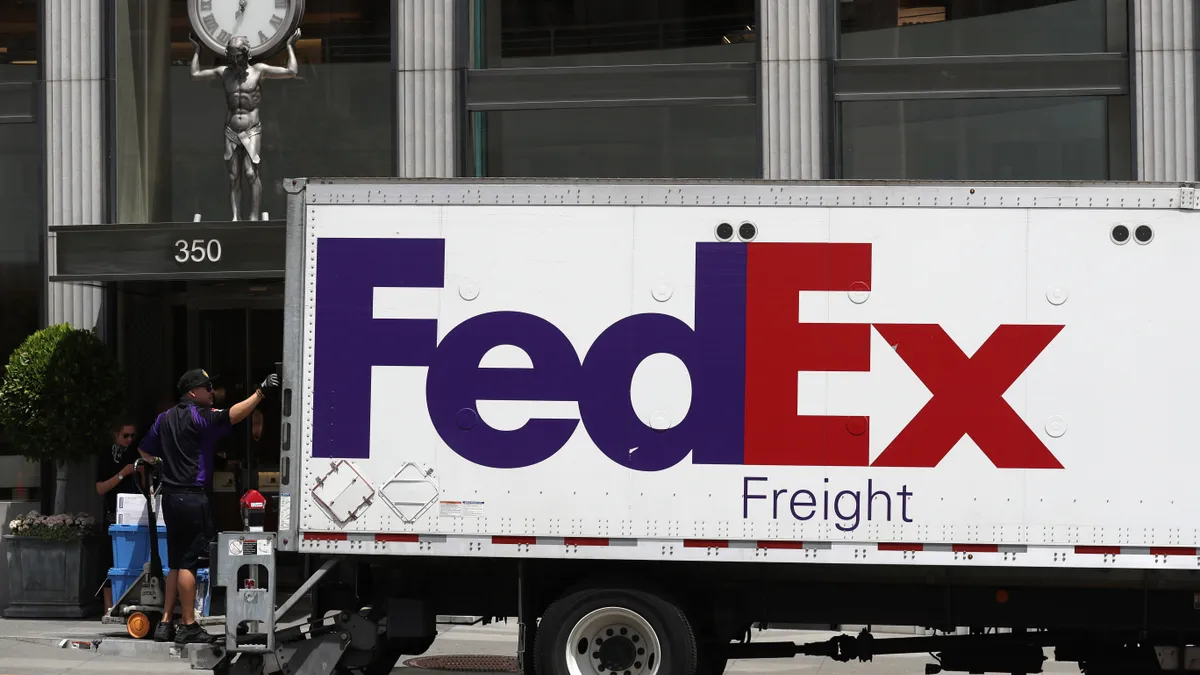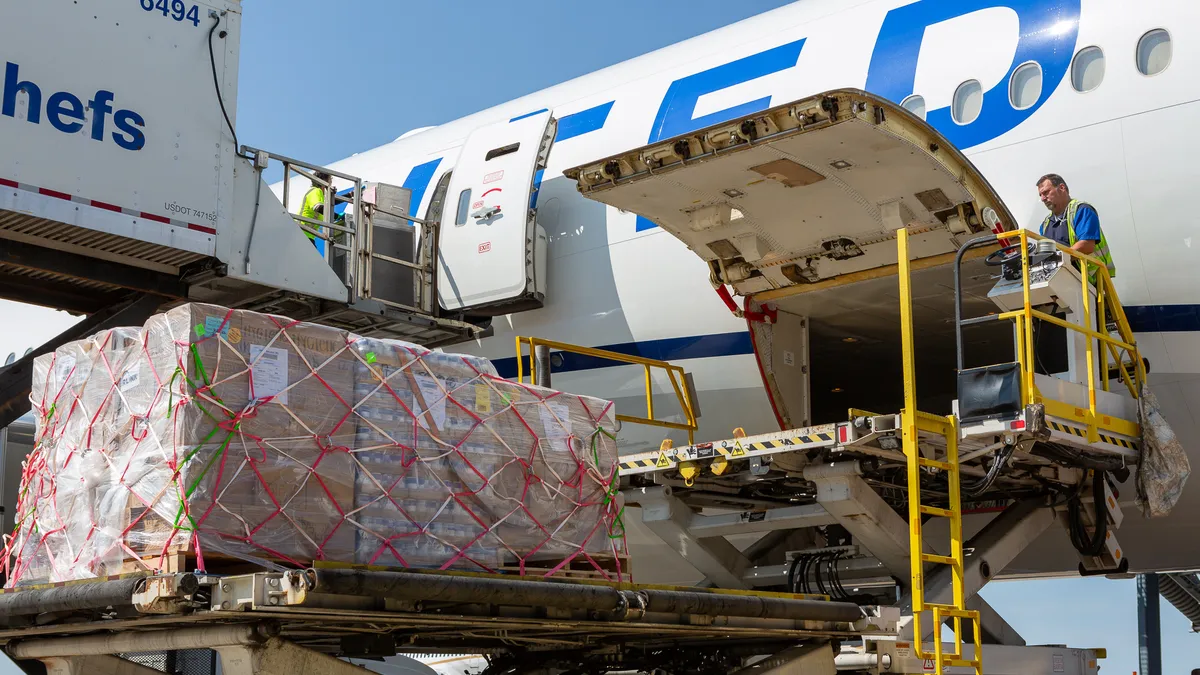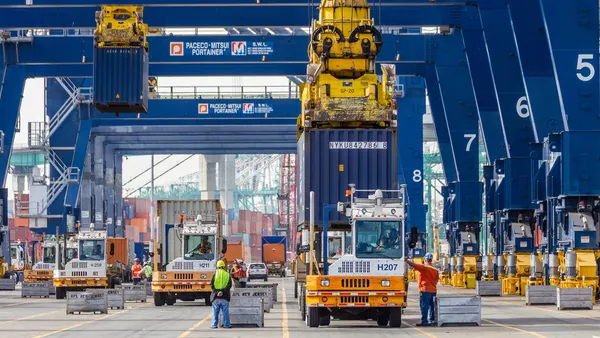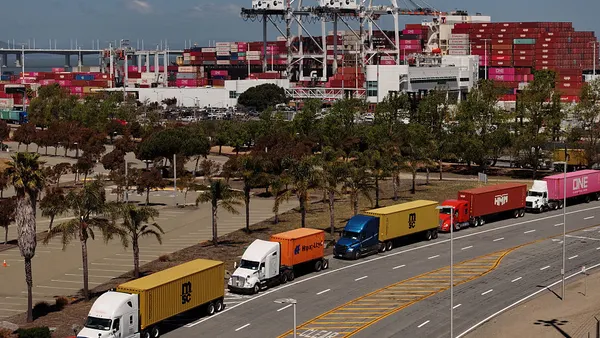Dive Brief:
- FedEx Freight will strengthen its collaboration with FedEx Ground under their parent company's "Network 2.0" strategy unveiled at an investors meeting.
- The plan includes more interaction between the two FedEx companies' intermodal operations. A dashboard developed by FedEx Dataworks revealed more opportunities for Freight's tractors to pick up available Ground trailers and reduce empty miles driven, Freight President and CEO Lance Moll said.
- FedEx could cut roughly 8 million "bobtail miles" with better cross-company collaboration on intermodal containers, according to Moll. "We see the opportunity after we just scaled up the Dallas-Fort Worth market, moving on to Kansas City. We see there's opportunity to attack 15 of the large railhead markets throughout the United States."
Dive Insight:
FedEx executives said during the meeting that they expect the Network 2.0 plan will make more efficient use of its different companies' vast resources. By fiscal year 2027, FedEx expects to see a $2 billion annual benefit from Network 2.0.
A stronger bond between Freight and Ground will be a critical component in reaching that goal.
"We'll be able to collaborate seamlessly to minimize empty miles," said FedEx Ground President and CEO John Smith, who previously held Moll's position. "We'll be able to inject volume across [operating companies] to increase our asset utilization on the road."
FedEx Freight and Ground are already familiar with collaborating. Freight provided Ground with linehaul support — when a Freight tractor pulls Ground equipment — during last year's peak parcel shipping season, Moll said. Freight also coordinated intermodal support for Ground by leveraging its relationships with major rail networks and shared multimodal containers with the company.
"Freight manages the pool and then we deploy containers over to [Ground] when they need them for their intermodal activities," Moll said.
Tapping into each other's networks further is a logical approach for Freight and Ground, as the two deal with different peak demand periods. Freight’s peak season typically starts in late spring and runs through the fall, while Ground's volume surge comes during the holiday shopping season.
"We share those resources back and forth, given the differing peaks that we both have," Moll said.
Freight has been a bright spot within its parent company's portfolio in recent quarters. Its operating margin jumped from 12.8% in fiscal year 2021 to 17.4% in 2022. Freight is aiming for a 20%-plus operating margin by fiscal year 2025, according to Moll.
"To achieve this goal, we will maintain pricing discipline and continue to drive profitable share growth and manage our cost regardless of the economic conditions," Moll said.















